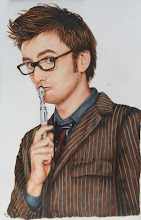This book is not an easy read; firstly, it takes, as one of its objectives, a review of the historical evidence regarding the birth of Islam and the conclusions to which Holland has come have attracted the opprobrium of certain adherents of that faith.
Right, that’s the elephant in the room out of the way. Secondly, the book covers a period from 224 to 800, which is a lot of years to cram into 430 pages (which does not include the chronology – vital – the dramatis personae – likewise – and the many pages of supplementary notes on the points raised in the chapters.) This is not a book to rush through; it will need the backflipping of pages to refresh yourself on details that you may have noticed but – due to the densely-packed narrative - you might have forgotten about.
This is because Holland’s prose style is almost novelistic and this makes his account of the end of the classical world and the rise of the three monotheistic faiths and their transformation into the religions we know today a very entertaining read. The bloodthirsty nature of both large-scale events – battles, massacres and plagues – and individual deaths (often gruesomely described with relish by Holland) is brought into sharp focus and we’re never allowed to forget that these deeds were carried out by men who firmly believed that what they were doing was right and sanctified.
Because he does not focus primarily on a simple chronological progression but rather examines his topic subject by subject, we retread the same years but from different perspectives. Holland slowly builds up his evidence in the style of a lawyer presenting his case; such is his technique that when he finally drops his bombshells, as outlined above, you find yourself nodding to yourself and saying “Ah yes, of course, I see it now.”
If you’re looking to build some historical verisimilitude into your campaign world, merely letting the book fall open at a random page will spark your imagination in a dozen ways. The methodical examination of the origins of religion can offer many clues in designing faiths into which your clerics can fit with ease; no milquetoast goody two-shoes here, but holy warriors who were completely unafraid to get their hands dirty if their god required it.
If you're able to give this book the time it deserves, you'll find it sheds a great deal of light on an area which has previously been thought merely a transition between the ancient and mediaeval worlds; in fact, this era was much more than that - incipient within it were the seeds of a major element of the world in which we live now.


Persian fire was a really great book ... one those that make you feel smarter for having read it, because it was so much more than just another rehash of Herodotus on the Persians! I'll add this one to my list.
ReplyDelete